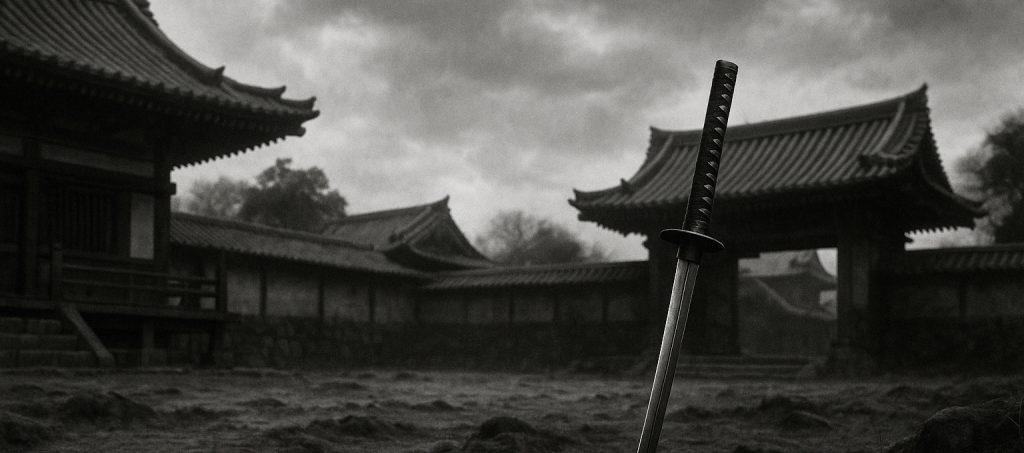In a world of overflowing calendars, endless notifications, and daily stressors, it’s easy to feel overwhelmed. But thousands of years ago, warriors faced pressure of a very different kind—life-or-death situations, daily training under harsh discipline, and the constant demand for clarity, focus, and inner control.
And yet, their strategies for cultivating strength, calm, and resilience still hold incredible relevance today.
From the quiet focus of the samurai to the sharp logic of the Stoics to the strategic brilliance of ancient generals, the warrior mindset offers a path to mental clarity and purpose—even in the 21st century.
Here are 7 timeless lessons you can apply right now.
1. Master Yourself Before You Master the World
“You may abandon your own body, but you must preserve your honour.” – Miyamoto Musashi, The Book of Five Rings
Musashi, Japan’s most legendary swordsman, defeated over 60 opponents in life-or-death duels. Yet he believed the true battle was internal. In his writings, he emphasized self-control, awareness, and emotional discipline over brute strength.
Modern takeaway:
Before you try to fix others, lead a team, or change the world—conquer your own impulses. Train your mind daily through reflection, discipline, and honesty. Confidence doesn’t come from domination. It comes from knowing who you are.
2. Know Your Enemy—and Know Yourself
“If you know the enemy and know yourself, you need not fear the result of a hundred battles.” – Sun Tzu, The Art of War
Sun Tzu’s masterpiece is not just about war. It’s about strategy, awareness, and perspective. He taught that the greatest victories are won before the battle begins—through preparation, clarity, and understanding both your own strengths and your opponent’s weaknesses.
Modern takeaway:
Whether you’re navigating office politics or personal conflict, strategy beats reaction. Understand your motivations, anticipate resistance, and act from purpose—not emotion.
3. Focus Only on What You Can Control
“You have power over your mind—not outside events. Realize this, and you will find strength.” – Marcus Aurelius, Meditations
Stoic Roman emperor Marcus Aurelius faced war, betrayal, and plague—but remained grounded through the core Stoic belief: accept what you cannot control; master what you can.
Modern takeaway:
You can’t control traffic, people’s opinions, or every outcome. But you can control your reactions, mindset, and effort. That’s the beginning of true mental resilience.
4. Remain Calm, Even in Chaos
“Anger is a momentary madness, so control your passion or it will control you.” — Horace, Epistles
Warriors aren’t just skilled in combat—they’re masters of temperament. Ancient martial and philosophical traditions emphasized not just strength, but the ability to stay composed under pressure. In Stoic thought, emotional outbursts are seen as lapses in judgment.
Modern takeaway:
True power lies in restraint. When chaos surrounds you, the calmest person in the room often has the most influence. In moments of stress or confrontation, slow your breath, soften your posture, and choose clarity over reaction.
NEW! Put the principles from this article into practice with the free courage-boosting MaArtial app on the App Store for iOs and Play Store for Android.
5. Live by a Code (Even When It’s Hard)
“To win any battle, you must fight as if you are already dead.” – Musashi
Musashi wasn’t glorifying death—he meant that a warrior must let go of fear in order to act fully. This mindset is rooted in Bushidō, the samurai code that upheld honor, loyalty, humility, and service above self-interest.
Modern takeaway:
Hold yourself to a personal code—even when no one is watching. Whether it’s honesty, discipline, or kindness, your inner code becomes your compass when the world is spinning.
6. Train Daily, Not Just When It’s Convenient
“The way is in training.” – Musashi
In martial arts and warrior traditions, daily practice is sacred. There’s no shortcut, no “life hack.” Only repetition, reflection, and patience.
Modern takeaway:
Mental strength is built like muscle—one repetition at a time. Build habits that challenge your mind: meditation, journaling, visualization, sparring with your fears. Train even on days when you feel off. That’s when growth happens.
7. Accept Death to Fully Embrace Life
“You could leave life right now. Let that determine what you do and say and think.” – Marcus Aurelius
For both Stoics and samurai, the awareness of death wasn’t morbid—it was liberating. It sharpened focus. It gave urgency to values and relationships. It stripped away pettiness.
Modern takeaway:
Use mortality as a motivator, not a fear. Don’t waste energy on things that won’t matter in a year. Live on purpose. Speak honestly. Love fully.
The Warrior Is Within You
These ancient warrior philosophers didn’t just survive their times—they thrived in chaos, pressure, and uncertainty. Their mindset wasn’t about violence or domination—it was about clarity, character, and resilience.
Train your mind as they trained theirs. Not to fight—but to be free.
“Today is victory over yourself of yesterday; tomorrow is your victory over lesser men.”
— Miyamoto Musashi












